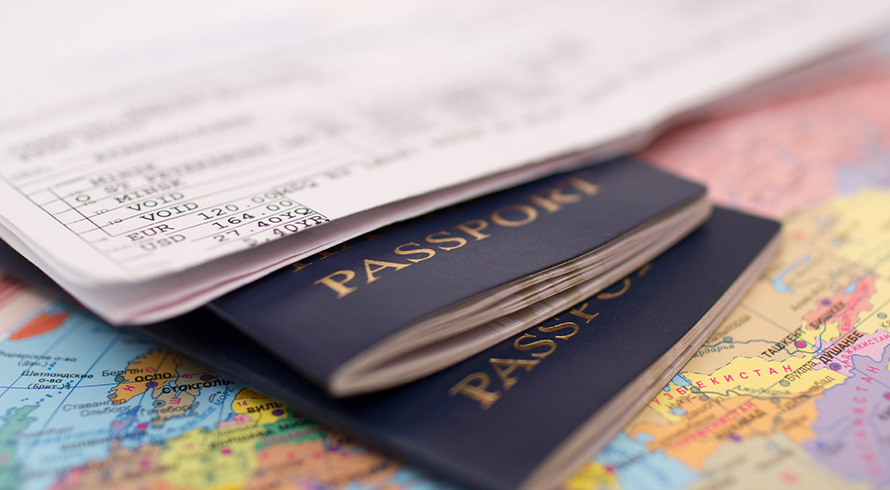Competition Law in Africa
For some time, African nations have been moving towards various forms of economic unity as a means to redress the divisions imposed by colonialism and to more effectively harness the continent's potential in the face of globalisation. This has seen public sector trade barriers tumble through the formation of customs unions, free trade areas, economic communities and similar mechanisms.
This regionalisation increases the geographic reach of business transactions and along with it, the likelihood that conduct by a firm in one country can (negatively or positively) affect business in other countries. At the same time, globalisation requires firms to be competitive on a global scale, with expansion beyond national boundaries an imperative.
Against such a background, the United Nations Conference on Trade and Development (UNCTAD) views an effective regional competition law regime as a sine qua non for effective African unity: with public sector trade barriers removed, it is private sector barriers to trade which remain an impediment to economic growth, efficiency, development and the alleviation of poverty. As relevant markets in Africa extend beyond national boundaries, it is clear that African countries need to co-operate to address cross border anti-competitive practice, to level the playing fields and ensure that consumers and suppliers alike are able to benefit from Africa's economic promise.
A number of protocols and declarations are already in place on the African continent, which seek to promote regional convergence of competition enforcement and case-specific cooperation. The Southern African Development Community (SADC) Protocol on Finance and Investment, the SADC Protocol on Trade, the SADC Declaration on Regional Cooperation in Competition Law, the Draft Tripartite Agreement and the Common Market for Eastern and South Africa (COMESA) Treaty all contain specific clauses aimed at introducing and harmonising competition law enforcement by and amongst member states.
The most advanced of all Regional Economic Communities (REC) in respect of Competition law in Africa is the Common Market for Eastern and Southern Africa (COMESA), founded in the 1960s and revised in 1994. COMESA has a vision, “to be a fully integrated, internationally competitive regional economic community with high standards of living for its entire people ready to merge into an African Economic Community.” Its 20 member states cut a swathe across the continent from Libya and Egypt in the north, through central and east Africa as far south as Zimbabwe and Swaziland, and includes the islands of Madagascar, Mauritius, Comoros and the Seychelles. Some of its members are part of other RECs, which means that best practice at COMESA will surely find its way to other regional markets.
COMESA competition law policy is embodied in two legal instruments introduced in 2004 – the COMESA Competition Regulations and the COMESA Competition Rules. The COMESA Competition Commission was formed in 2009, with its headquarters in Malawi.
The COMESA competition regulations apply to “all economic activities conducted by private or public persons within or having an effect within, the Common Market; and anti-competitive business practices, conduct relating to merger and acquisition and to consumer protection, which have an appreciable effect on trade between member States and which restrict competition in the Common Market.”
It is clear that COMESA's ambition is to introduce a federal competition law regime similar to that operating in the EU. It will have primary jurisdiction over all matters with a community dimension (ie, where the matter affects competition in more than one Member State).
The COMESA Treaty makes the regulations binding on all Member States and encourages co-operation between COMESA and Member States in respect of competition enforcement. Within COMESA, the Competition Commission investigates breaches (anti-competitive conduct and consumer protection) and mergers and acquisitions. As part of its advocacy and policy review function, the Commission also mediates disputes on policy between Member States. The Board of Commissioners makes rulings, imposes remedies and hears appeals from the Commission. The COMESA Court is a final court of appeal on matters related to the COMESA Constitution (for instance, if the Board or Commission misapplies regulations or exceeds powers under the Treaty).
COMESA seeks to regulate both anti-competitive conduct as well as mergers within the Common Market.
COMESA defines Restrictive Business Practices as being, “All agreements between undertakings, decisions by associations of undertakings and concerted practices which are, or are intended, to be implemented within the Common Market; which may affect trade between Member States; and which have as their object the prevention, restriction or distortion of competition within the Common Market." Exemptions may be granted if conduct, “contributes to production or distribution of goods or to promoting technical or technological or economic progress while allowing consumers a fair share of the benefit.”
Prohibited practices in terms of the regulations include price fixing, bid rigging, market division and quota allocation as to sales and production, collective action to enforce arrangements, concerted refusals to supply or purchase (collective boycotts) and collective denial of access to arrangements or associations that are crucial to competition.
The regulations also cover abuse of dominance by large firms, which may include:
- Restricting the entry of new undertakings into the market
- Preventing or deterring any undertaking from engaging in competition in a market
- Eliminating or removing any undertaking from a market
- Directly or indirectly imposing unfair purchase or selling prices or other restrictive practices
- Limiting the production of goods and services for a market to the prejudice of consumers
- Persuading others in the market to sign agreements against their interests
- Exploiting customers or suppliers so as to frustrate the benefits expected from the establishment of the Common Market.
In the case of anti-competitive conduct, an investigatory procedure is initiated at the written request of any person or organisation with reason to believe activity in a Member State is, or is likely to, restrict competition in the Common Market. The Commission may also investigate of its own accord.
Once the procedure has been initiated the Commission has 30 -75 days to consult with those with an “interest” in the proceedings to determine jurisdiction. Interested parties must be told of the decision to initiate and the initial period of investigation is 180 days. If the investigations indicate a breach - a hearing must be offered with at least 20 days’ notice and the interested parties have 15 days to appeal to the Board.
With regard to mergers and acquisitions, COMESA has primary jurisdiction where there is “regional dimension” (where both or either parties operate in two or more COMESA States) and provided that certain financial thresholds (turnover or asset values of the merging parties) in the COMESA region is exceeded. Such thresholds are yet to be published but are expected during November 2012.
Parties to a merger must notify COMESA with 30 days of an "intention to merge". A penalty of up to 10% of turnover can be imposed for failure to notify. A notification fee is set at 0.01% of COMESA turnover. The Member States maybe apply to take over if they are satisfied that the merger will disproportionally reduce competition in the Member State and COMESA has 21 days to decide if this is the case. There is an initial period of 120 days for COMESA to investigate.
COMESA does have its challenges. There has to be effective cooperation between Member States for it to work and it could be bogged down with bureaucracy, thereby reducing the efficiency of any decision making powers. The differing levels of regulatory competence in the Member States could also pose a challenge as could political posturing and interference by Member States. The costs associated with enforcing regulation and competition policies in the Member States might difficult for less developed states to meet. Finally, a balance will need to be drawn between fostering small local firms and developing national and regional champions fit to compete on a global stage. However, the regulations are largely based on EU and UNCTAD principles and best practice, which means that effective enforcement does not mean "reinventing the wheel". In addition, it is expected that COMESA will be shown a great deal of support from more established competition law regimes so that its learning curve will be steep.
Simply put, there is no effective economic community without a robust competition regime in place, and this is becoming clear to all those with an interest in regional economic development. Key executive posts have recently been filled and COMESA has indicated that all necessary regulatory processes and procedures should be in place by the middle of November this year. Once it is up and running, other regions can be expected to follow suit (and in fact have undertaken to do so by way of various treaties and accords). An effective COMESA competition law regime will certainly herald an acceleration of local competition law and enforcement – indeed, there is already informal cooperation between South African Customs Union (SACU) competition regulators in terms of technical assistance and capacity building, and the launch of the African Competition Forum in Kenya during March last year is an indication that these issues are high on the agenda of African states. The writing is on the wall, and doing business in Africa will require an increased cognisance of not only local, but also regional, competition law.
The information and material published on this website is provided for general purposes only and does not constitute legal advice. We make every effort to ensure that the content is updated regularly and to offer the most current and accurate information. Please consult one of our lawyers on any specific legal problem or matter. We accept no responsibility for any loss or damage, whether direct or consequential, which may arise from reliance on the information contained in these pages. Please refer to our full terms and conditions. Copyright © 2026 Cliffe Dekker Hofmeyr. All rights reserved. For permission to reproduce an article or publication, please contact us cliffedekkerhofmeyr@cdhlegal.com.
Subscribe
We support our clients’ strategic and operational needs by offering innovative, integrated and high quality thought leadership. To stay up to date on the latest legal developments that may potentially impact your business, subscribe to our alerts, seminar and webinar invitations.
Subscribe




